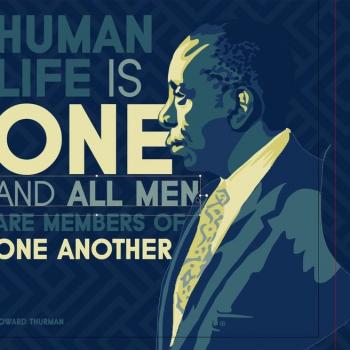This week's portion, Matot, teaches the laws of making an oath. Here, a father can nullify his daughter's oath and a husband can nullify his wife's oath. This text's assertion of a man's right to nullify the oaths of the women in his "charge" continues to darkly resonate today. In an article in Bitch Magazine on the Patriarchal Christianity Movement, the following introductory quote is intended to shock us into reading the rest of the article:
Daughters aren't to be independent. They're not to act outside the scope of their father. As long as they're under the authority of their fathers, fathers have the ability to nullify or not the oaths and the vows. Daughters can't just go out independently and say, "I'm going to marry whoever I want." No. The father has the ability to say, "No, I'm sorry, that has to be approved by me."
The making of an oath is emphatically linked to personal agency—what is more personal and sacred than the right and the ability to make a promise before God? An oath made in good faith is the location where an inner spiritual life meets the external world. Oath making is treated with the utmost seriousness in the Jewish tradition, to the extent that the practice of making an oath has been strongly discouraged and oaths are prophylactically nullified on Yom Kippur night in the Kol Nedria service.
In the Torah's text, fathers and husbands need to hear the woman make the oath in order to nullify, and they must nullify right after hearing it—otherwise the oath stands. The Talmud further limits a husband's right to nullify his wife's oaths to only oaths that are connected to him—for example, as in an oath to refrain from sex (Talmud Nedarim 79b). However, when a man nullifies a woman's oath, her slate is not entirely wiped clean. Residues of the unfilled promises linger in the text:
If her father restrained her on the day of his hearing all her vows or prohibitions that she established upon herself shall not stand; and God will forgive her, for her father had restrained her. (Numbers 30:6)
If her husband shall revoke them on the day of his hearing, anything that came out of her mouth regarding her oath or the prohibition upon herself shall not stand; her husband had revoked them and God will forgive her. (Numbers 30: 13)
While the oath is nullified, she still needs to be forgiven for not keeping her promise. According to Rav Yehuda Rock, of the Virtual Beit Midrash, this law "comes to ease the situation of a woman who is obligated to her father or husband. If the father or husband prevents her from fulfilling her vows or oaths, God forgives her—since she is, to some extent, obligated to the man, and her time is not entirely her own."
The Torah law of oath nullification is making room for a less than perfect cultural reality. The text sees the limits that the world has placed upon her, because she is woman, and perhaps in the mere fact of seeing those limits, there is hint of disapproval. She is permitted to make an oath—to have a dream, however, when the dream fails, she can have the comfort of knowing that the failure is not entirely her own. The vow was nullified and God forgives her. The oath was real and true, she simply lacked the cultural autonomy to effectuate it. First comes her right to dream.
Rabbi Jacqueline Koch Ellenson, in Torah: a Woman's Commentary, describes the subtle and mundane ways in which the promises of women continue to be nullified:
On one hand, while we live in a time when, as women, we are blessedly free from the kind of controls that Numbers prescribes. On the other hand, we find ourselves within a web of relationships where we often give up what we had promised to ourselves, or we redirect our abilities.
The tension that exists in Matot is ongoing for many contemporary women. Where is the right to actualize the dream? While it may no longer be our actual fathers or husbands who prevent us from keeping our promises, untold power structures have taken their proverbial place. For those of us, of any gender, who find ourselves inhabiting the space between the dream and its actualization, we can forgive ourselves for dreams deferred—because "God will forgive her."
7/18/2011 4:00:00 AM





